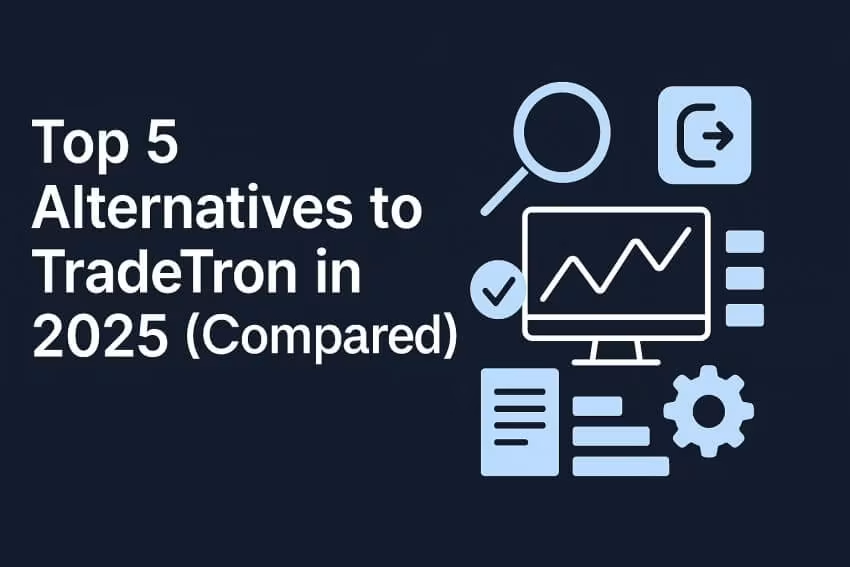Algorithmic trading, commonly known as algo trading, is reshaping the landscape of financial markets. For Nifty traders, in particular, it offers a new level of precision, efficiency, and reliability. The Nifty 50, one of India’s most prominent stock indices, consists of 50 diversified stocks, making it a favourite among traders. With the rapid developments in technology, algo trading has become a significant tool for Nifty traders looking to enhance their trading strategies.
In this blog, we’ll explore why algo trading is a game-changer for Nifty traders and how using tools like an option payoff diagram generator, an option payoff chart, and other algorithmic software can make a significant difference.
1. Speed and Precision
One of the primary reasons why algo trading is revolutionary for Nifty traders is the unparalleled speed and precision it offers. In traditional trading, human decision-making processes often introduce delays, and emotions can cloud judgment. Algo trading, on the other hand, executes trades in milliseconds, capitalising on fleeting market opportunities that are impossible to capture manually.
For Nifty traders, where market movements can be swift and significant, this speed is crucial. Whether you're trying to capture a short-term price movement or automate a long-term strategy, algo trading ensures that your orders are executed with precision.
2. Eliminating Emotional Bias
Trading in the Nifty 50 index can be challenging, especially when emotions come into play. Fear and greed are powerful forces that can lead to poor decision-making. Algo trading removes this emotional aspect by executing trades based on pre-set rules and conditions.
When using an algo trading platform like uTrade Algos, traders can set specific entry and exit points, ensuring that decisions are made objectively. By sticking to the algorithm, traders can avoid the pitfalls of emotional trading and make more consistent, data-driven decisions.
3. Backtesting and Strategy Development
One of the standout features of algo trading is the ability to backtest strategies before deploying them in the live market. This is particularly beneficial for Nifty traders, as it allows them to test their strategies against historical data to see how they would have performed.
Using tools like an option payoff diagram generator and an option payoff chart, traders can visualise their potential risks and rewards. Backtesting these strategies on an algo trading platform like uTrade Algos gives traders confidence in their approach, ensuring that they are well-prepared for real market conditions.
4. Customisable Strategies
The Nifty 50 index offers a diverse range of trading opportunities, from trend-following strategies to options trading. Algo trading platforms provide the flexibility to customise strategies according to individual preferences.
For example, traders can use an option payoff diagram generator to create and evaluate complex options strategies. These tools help traders visualise different scenarios and make informed decisions. By tailoring algorithms to their unique trading style, Nifty traders can maximise their efficiency and effectiveness.
5. Risk Management
Risk management is a critical aspect of trading, and algo trading platforms excel in this area. For Nifty traders, managing risk can be particularly challenging due to the volatility of the index. Algo trading allows traders to implement automated risk management techniques, such as stop-loss orders and trailing stops.
Moreover, using an option payoff graph helps traders understand the risk-reward profile of their trades. By incorporating these tools into their strategies, traders can mitigate potential losses and protect their capital.
6. Scalability
Algo trading offers scalability that manual trading cannot match. Once a strategy has been developed and tested, it can be applied across multiple securities and markets without additional effort. For Nifty traders, this means they can trade not just one stock but all 50 stocks in the index simultaneously if desired.
Additionally, using an algo trading platform enables traders to monitor and adjust multiple strategies in real-time. This scalability allows traders to capitalise on a broader range of opportunities without being limited by the constraints of manual trading.
7. Efficiency in Options Trading
Options trading in the Nifty 50 can be complex, requiring careful analysis of various factors, including strike prices, expiration dates, and implied volatility. Algo trading simplifies this process by automating the execution of options strategies.
Tools like an option payoff diagram generator and an option payoff chart are invaluable for visualising different scenarios and outcomes. For Nifty traders who frequently engage in options trading, algo trading ensures that their strategies are executed efficiently, reducing the likelihood of errors and missed opportunities.
8. Adapting to Market Conditions
The financial markets are constantly evolving, and Nifty traders need to adapt to changing conditions. Algo trading platforms offer the flexibility to adjust strategies on the fly, responding to market developments in real-time.
For instance, if market volatility increases, traders can modify their algorithms to incorporate tighter risk controls or adjust their positions. By staying adaptable, Nifty traders can maintain an edge in the market, regardless of the conditions.
9. Lower Costs
Algo trading can also lead to lower transaction costs, particularly for high-frequency traders. By automating the trading process, algo trading reduces the need for manual intervention, which can result in fewer errors and lower slippage.
For Nifty traders who execute a high volume of trades, this cost efficiency can make a significant difference over time. Additionally, many algo trading platforms offer competitive pricing models, making them accessible to a broader range of traders.
10. Integration with Advanced Tools
Lastly, algo trading platforms often integrate with advanced tools and software, providing Nifty traders with a comprehensive trading solution. For example, using an option payoff graph alongside an algo trading platform allows traders to visualise and execute their strategies seamlessly.
On an algo trading platform, traders can access a range of tools, from advanced charting to real-time data feeds, all in one place. This integration streamlines the trading process, allowing traders to focus on strategy development and execution rather than managing multiple platforms.
In conclusion, algo trading has revolutionised the way Nifty traders approach the market. With its speed, precision, and ability to eliminate emotional bias, algo trading offers significant advantages over traditional trading methods. By incorporating tools like an option payoff diagram generator, an option payoff chart, and other algorithmic trading software, traders can develop and execute strategies with confidence.
On an algo trading platform like uTrade Algos, Nifty traders can harness the power of technology to improve their trading performance and navigate the complexities of the market with ease. Whether you're a seasoned trader or just starting, algo trading is a game-changer that can help you stay competitive in the fast-paced world of Nifty trading.












